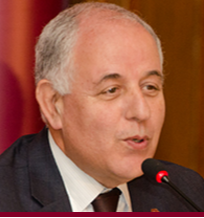How can the digital economy benefit everyone in the Arab world—and prevent the region from falling farther behind?
Digitalization is one of the main forces shaping the modern global economy—and an area in which the Arab world has fallen behind. Policy-makers in the region must find ways to capitalize on the enormous dividends of new digital technologies and mitigate their risks. Reaping the benefits will require improved education and training, better cybersecurity, more private sector support, and international cooperation.
Tunisia’s experiences with industrial policy and export diversification
What has been the role of industrial policy in Tunisia’s export diversification of the past 25 years? This column reports research evidence on the dynamics of diversification since 1995 for primary and resource-based products as well as manufactured products. The authors show that contrary to the conventional view that the country has achieved limited success in moving up the technological ladder in terms of the diversification and sophistication of its exports, there has been extensive progress.


